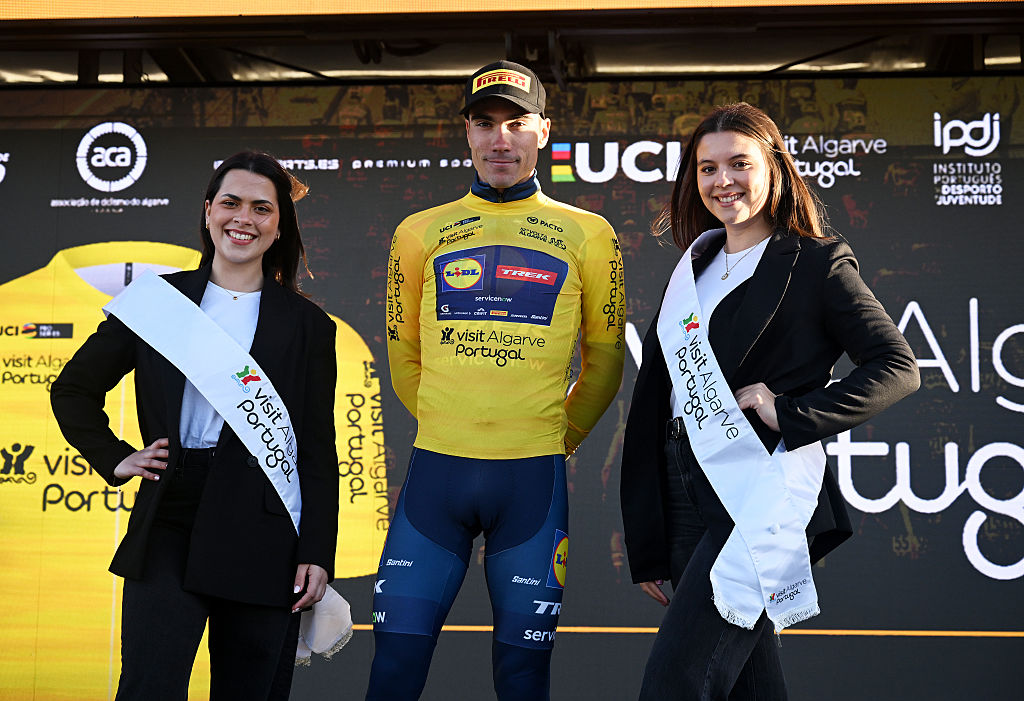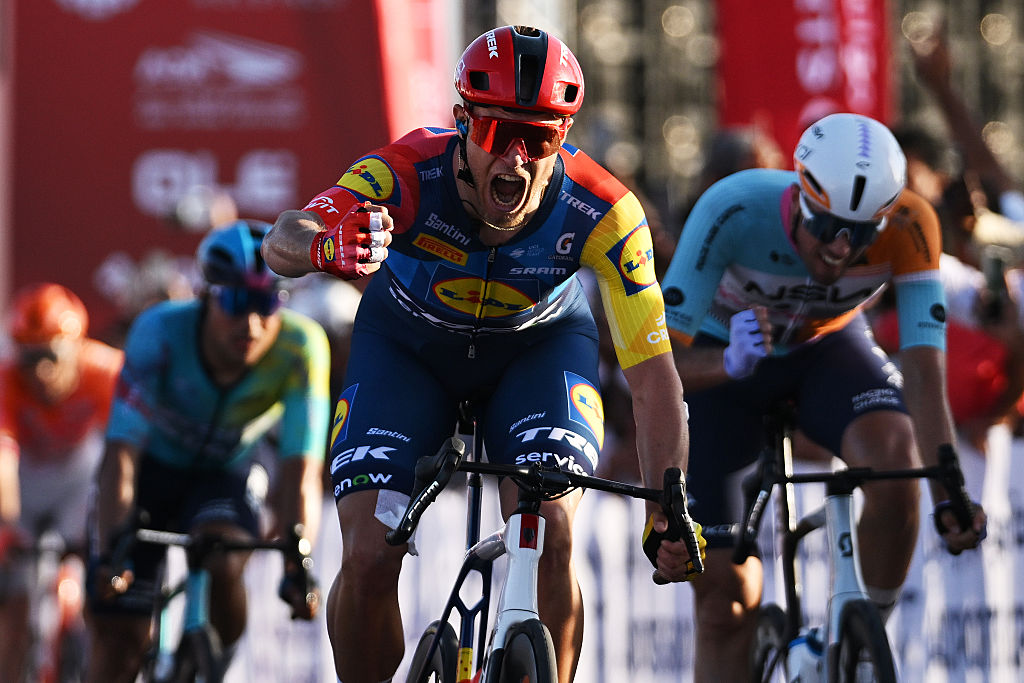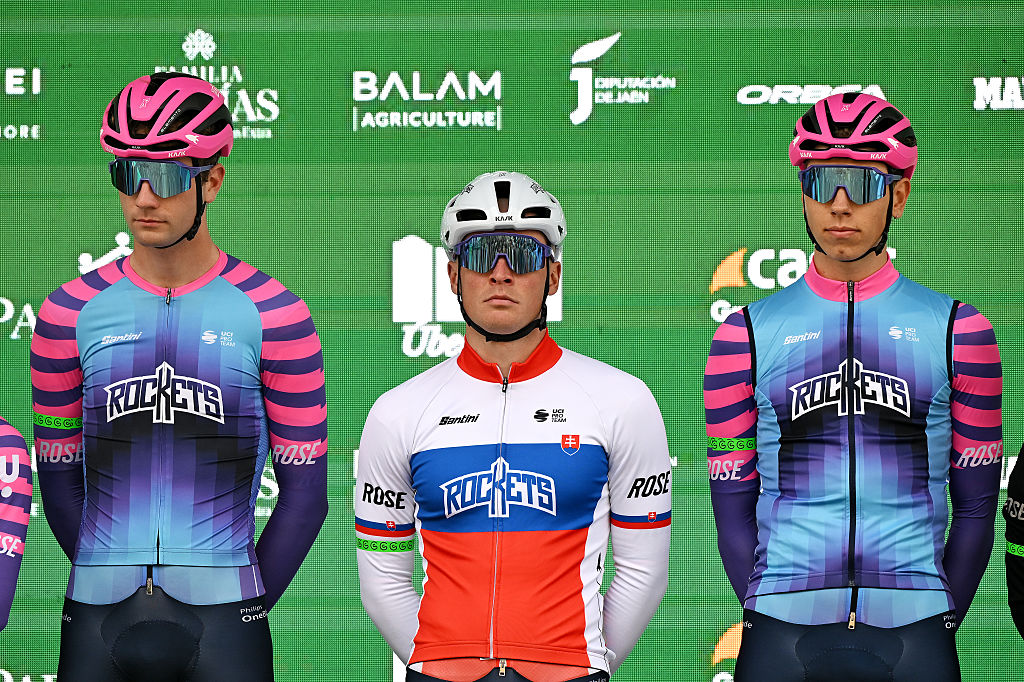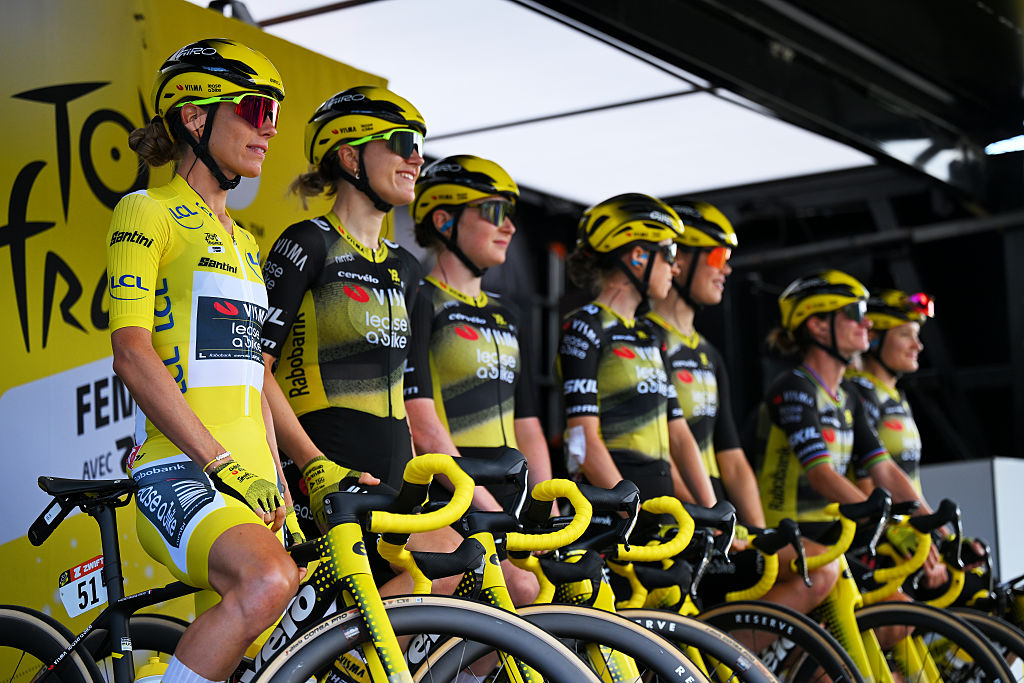Menchov a certain winner as Sastre erupts on Vesuvio
Stage 19 - Friday, May 29: Avellino - Vesuvio, 164km
The latest race content, interviews, features, reviews and expert buying guides, direct to your inbox!
You are now subscribed
Your newsletter sign-up was successful
Friday on Mount Vesuvius, one witnessed an eruption of the two-wheeled kind at the Centenary Giro as Cervelo TestTeam's Carlos Sastre, his title chances written off after a bad day in the mountains two days prior, redeemed himself on its baking hot slopes to claim his second hilltop win.
"It was two nice victories, but my goal in this Giro d'Italia was something more," said Sastre with typical honesty.
"In [Stage 17 to] Blockhaus, I lost two important riders for the climbs - a teammate [Philip Deignan] crashed just before the climb and I lost another good rider two days before [in Volodymir Gustov]. Then I made a mistake when [Danilo] Di Luca attacked and I couldn't follow. But, I'm happy - three big stages for our team."
Conversely, on mainland Italy's only volcano to have erupted in the past century, maglia rosa Denis Menchov kept ice-cool. As he has done since he took the lead seven stages ago in the Cinque Terre time trial, the cold-faced Rabobank leader defended superbly, allowing those who did not threaten him to ride away - but never losing sight of arch-rival Di Luca of LPR Brakes-Farnese Vini, the pair ending the stage on the same time, a half-minute behind Sastre in third and fourth, respectively.
Throughout this race, Menchov never looked like he'd gone into the red - Friday told the same story. "From the very first stages, it was clear Di Luca was ready to win," he told Cyclingnews.
"The most important thing [after I took the race lead] was to follow him, so the situation now is perfect. To be in the race lead now, it's shown I've performed well and almost achieved my number one goal," said Menchov, whose lead to Di Luca narrowed to 18 seconds, courtesy of an eight-second time bonus awarded for third on the stage.
"I achieved my target; I didn't want to lose time to him today. The bonus [Di Luca got] at the end wasn't important," Menchov said. "Di Luca is very good at changing rhythm on the climbs, but fortunately my body was able to respond to his attacks."
The latest race content, interviews, features, reviews and expert buying guides, direct to your inbox!
Little movement among top five
In actual fact, by the day's end and despite those who attempted to forge ahead, only Sastre, Liquigas' Franco Pellizotti and Di Luca preceded the expressionless, laconic Russian, Pellizotti's teammate Ivan Basso rounding out the top five and switching spots on GC with Sastre.
Asked if he always felt the shadow of Menchov behind him, Di Luca said, "Menchov did well [to stay on my wheel]. I am used to staying on the front anyway, fighting for the win. I put him in trouble, but I was also in trouble; I was at my limit and so was Menchov, so we were equal."
Despite Pellizotti's valiant efforts today and on Blockhaus that now see him 1:39 off the maglia rosa in third overall, in reality the curly blond's done little to better his chances on the classifica generale. Though more than likely he'll be rapt with that come Roma, and Pellizotti, solid against the clock, would need to have one of the worst days on the bike to lose his spot to Sastre (@ 2:40) or Basso (@ 3:33).
And with that last 14.4-kilometre race against the clock the only obstacle in Menchov's path, a discipline he's superior compared to his rivals, surely for Menchov the Giro's won?
"You can't say you've already won the race. I prefer to wait until it's over," he said.
"I think I have to be relaxed - no," Menchov corrected himself, smiling, "relaxed is not possible - I have to be calm. It's always better to be in front. I know I'm in good shape, so I know I can do a good time trial. I can be calm and confident [I can hold my lead]."
A kick in the ankle
Southern Italians love the heat (who doesn't envy their unblemished olive skin?), and there was plenty of that early Friday afternoon in Avellino, where the final mountain stage of the 92nd Giro began. Taking into account Mount Vesuvius, situated at the ankle of Italy's boot, was last used for an Italian Grand Tour 19 years ago in what was a 190-kilometre road stage won by Spaniard Eduardo Chozas, apart from those few who had managed to preview the climb, the percorso was run on unfamiliar territory for most of the 171 that remained.
Consequently, it was not in the least surprising to see an early break go, Mauro Facci (Quick Step) and Yuriy Krivtsov (AG2R La Mondiale) skipping away just 16 kilometres in. With Facci the best placed rider on GC - if you can call being 16 minutes short of three hours well-placed - the pair was allowed all the freedom they wanted for the first two hours as they hugged the coast road from Salerno (km 33.1) all the way to Ercolano (km 148), five kilometres from the base of Vesuvio.
Seven minutes' lead after 44 kilometres and six minutes ahead with a century of kilometres remaining, Facci and Krivtsov appeared to relish their coastal ride to the ankle of Italy's boot; perhaps they already knew their chances of a stage victory were about one in a thousand.
It wasn't the same story for Astana's Lance Armstrong, suddenly changing his line around a right-hand corner to avoid Mauro Da Dalto of Lampre, the Italian overcooking a corner at the 80 kilometre mark. The result saw both come down and skid towards the barriers, the Texan landing on the side of his broken collarbone, but thankfully both were unhurt and soon rejoined the race.
The 13.3-kilometre, third category ascent of Picco Sant'Angelo led to a natural reduction in the gap between break and bunch, 4:35 the time-check at its crest (km 101). Twenty kilometres from the start of the climb proper, it was a further two minutes less, the bunch ominously driven by the LPR jerseys of Di Luca as they passed the near-2000 year-old ruins of Pompeii.
All together by the base of Vesuvio, the top three on GC kept their cool as they watched those that didn't threaten their podium position take flight - even letting Stefano Garzelli and Basso go early in the peace. Ten kilometres from home, Di Luca had a dig but as he's always been while Menchov was ever-attentive. A kilometre later, Sastre shot out of the gruppo maglia rosa and quickly bridged to Basso, who had dropped Stefano Garzelli but wasn't looking super, managing only to stay on the Spaniard's wheel till 5km out, when the 2006 Giro champ lost contact.
"I attacked because I wanted to give my maximum," said Sastre. "To drop Basso was not easy. Today, the radio was working well and when I got a time split, I was 40 seconds in front, but Pellizotti was also strong."
Pellizotti chose his moment not long after, again three kilometres from the line, and once more two kilometres out, a third attempt finally ridding himself of Di Luca and Menchov. Between Sastre and and the gruppo maglia rosa were the names of Pellizotti, Basso, Simoni and Arroyo, but all that Menchov cared about - all he needed to care about - was the maroon maglia of Di Luca, a maglia he never let out of sight.
One kilometre out Sastre appeared close to dying a thousand deaths, but the defending Tour champ had enough in the tank to cross the line a happy man, even if his chances of overall victory were behind him.
"It wasn't like L'Alpe d'Huez last year [in the Tour de France]," Sastre said, "where every kilometre, I was making time on the others. Today, I felt the other [rivals] were stronger. I was suffering all the time uphill."
Latest on Cyclingnews
-
Volta ao Algarve stage 3 LIVE: Juan Ayuso strives to defend lead in all-important time trial
Time trial specialists treated to a 19.5km race against the clock from Vilamoura to Vilamoura -
UAE Tour: Jonathan Milan doubles up in scrappy sprint finish on stage 5
Italian rider confirms his status as the fastest finisher in the UAE Tour -
Unibet Rose Rockets will ride a Grand Tour in 2026 as Giro d'Italia names teams and wildcards
Tudor and Pinarello-Q36.5 included in line-up for race starting in Bulgaria, as Cofidis decline automatic invitation -
'It's a major challenge' – Visma-Lease a Bike need to find €30 million sponsor to keep up with rival super teams
'Where they'll find that money is the million-dollar question' says Soudal marketing expert Marko Heijl



